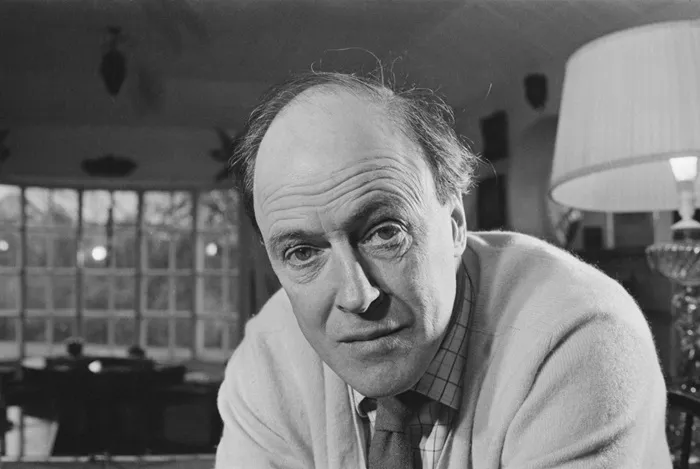Roald Dahl is a name that resonates with readers of all ages. Renowned for his imaginative storytelling, he crafted tales that have become staples in children’s literature. But beyond the pages of his books, who was Roald Dahl, and what made him a quintessential British author?
Early Life: A Welsh Beginning
Born on September 13, 1916, in Llandaff, Cardiff, Wales, Roald Dahl was the son of Norwegian immigrants Harald Dahl and Sofie Magdalene Dahl. His father, a wealthy shipbroker, and his mother, from a distinguished Norwegian family, ensured that Roald and his sisters were raised with a blend of Welsh and Norwegian influences. Dahl’s first language was Norwegian, spoken at home, and he was baptized in the Church of Norway.
Education: Formative Years in England
At the age of 13, Dahl was sent to Repton School in Derbyshire, England. His experiences there were less than favorable; he described the environment as one of “ritual cruelty,” where younger boys endured harsh treatment from their seniors. These formative years, marked by such hardships, later influenced the darker themes in his writing.
Wartime Service: From Pilot to Spy
With the onset of World War II, Dahl joined the Royal Air Force (RAF) in 1939. Serving as a fighter pilot, he saw action in Greece and Syria. After a crash landing in Libya, he was reassigned to Washington, D.C., as an assistant air attaché. During this time, he also worked as a spy for the British government, gathering intelligence in the United States.
Literary Beginnings: From Fighter Pilot to Storyteller
Dahl’s transition from military service to writing was influenced by author C.S. Forester, who encouraged him to pen his RAF experiences. This led to his first published work, “A Piece of Cake,” detailing his wartime adventures. His initial foray into children’s literature, “The Gremlins” (1943), was inspired by RAF folklore but received lukewarm responses.
Rise to Fame: Crafting Children’s Classics
Dahl’s true genius shone through in his children’s books, which combined dark humor, fantasy, and a touch of the macabre. Some of his most celebrated works include:
“James and the Giant Peach” (1961): A tale of adventure and friendship that captivated young readers.
“Charlie and the Chocolate Factory” (1964): Introduced readers to the whimsical world of Willy Wonka.
“Matilda” (1988): Celebrated the story of a gifted girl overcoming adversity.
These stories, among others, have sold over 200 million copies worldwide, solidifying Dahl’s status as a master storyteller.
Writing Style: A Blend of Dark Humor and Whimsy
Dahl’s writing is characterized by its unique blend of dark humor, fantasy, and moral lessons. He had an uncanny ability to depict the struggles of childhood, often pitting young protagonists against cruel and unjust adults. This narrative approach resonated with readers, offering both entertainment and a sense of justice.
Personal Life: Triumphs and Tribulations
Dahl’s personal life was as eventful as his literary career. He married American actress Patricia Neal in 1953, with whom he had five children. The couple faced numerous challenges, including the tragic death of their first child and Neal’s subsequent stroke. Their marriage, marked by both passion and turmoil, eventually ended in divorce.
Controversies: A Complicated Legacy
While Dahl’s contributions to literature are immense, his legacy is not without controversy. In several interviews during the 1980s and ’90s, he made statements that were widely regarded as anti-Semitic. He later defended himself as being “anti-Israel” rather than anti-Semitic, but this distinction was not widely accepted. In 2020, his family and publishers issued apologies for his remarks, acknowledging the hurt they caused.
Influence and Recognition: A Lasting Impact
Dahl’s influence extends beyond literature. His stories have been adapted into numerous films, stage productions, and even theme park attractions. In 2008, The Times ranked him 16th on its list of “The 50 Greatest British Writers Since 1945.” His ability to captivate audiences, both young and old, ensures that his works remain relevant and cherished.
Conclusion
Roald Dahl’s life and work embody the complexities of genius. As a British author, he drew from his diverse heritage, personal experiences, and observations of human nature to create stories that continue to captivate readers worldwide. While acknowledging the controversies that marred his personal views, it is essential to recognize the profound impact of his literary contributions. Dahl’s stories remind us of the power of imagination, the importance of standing up against injustice, and the enduring appeal of well-crafted narratives.

